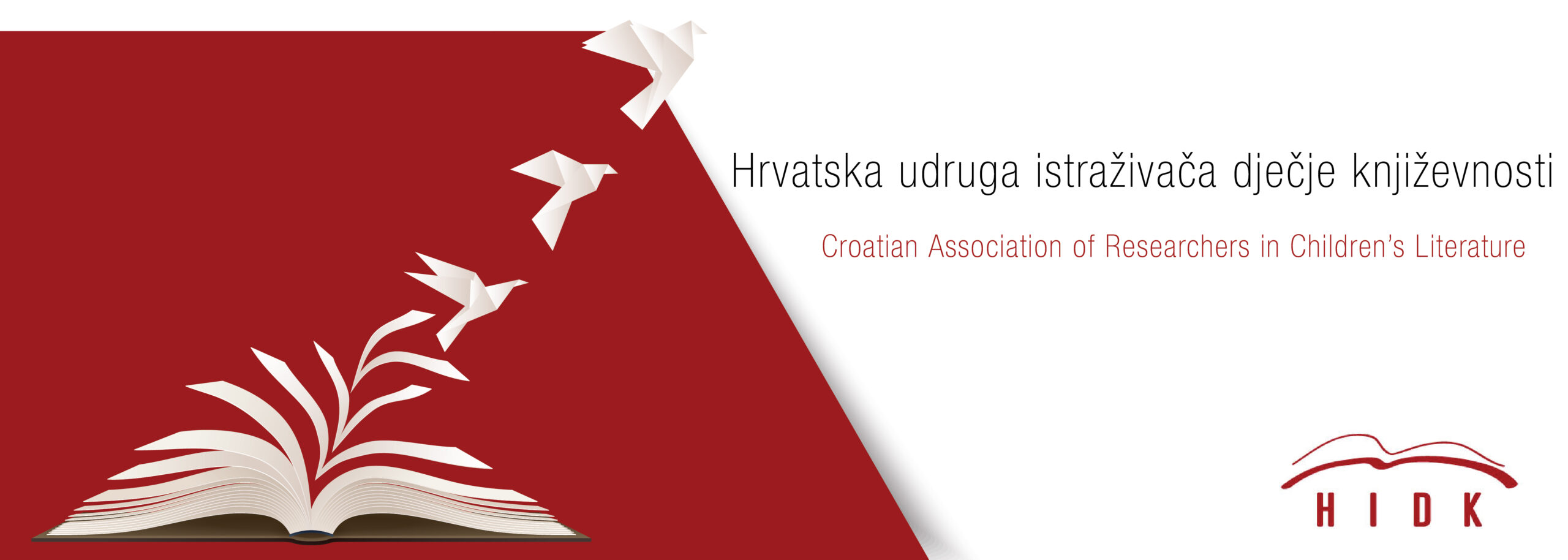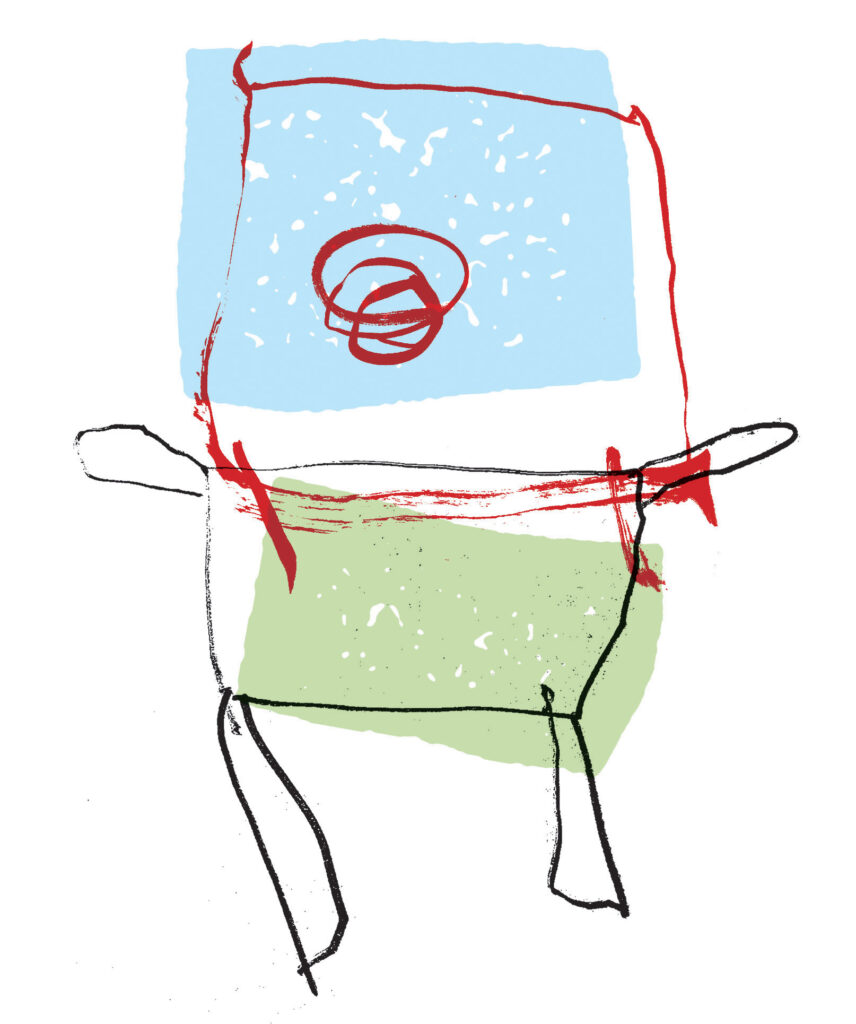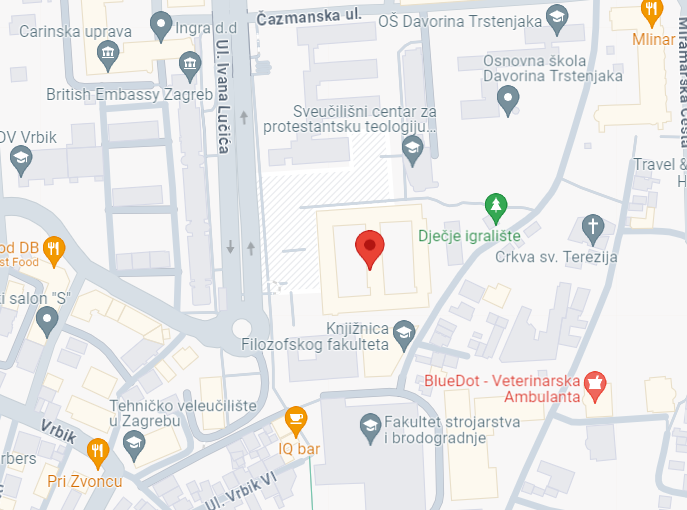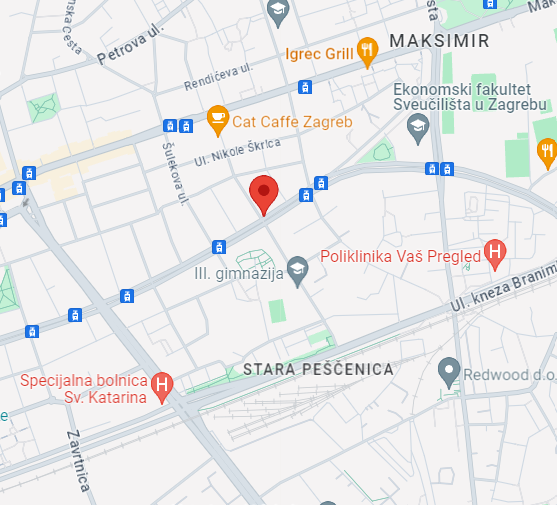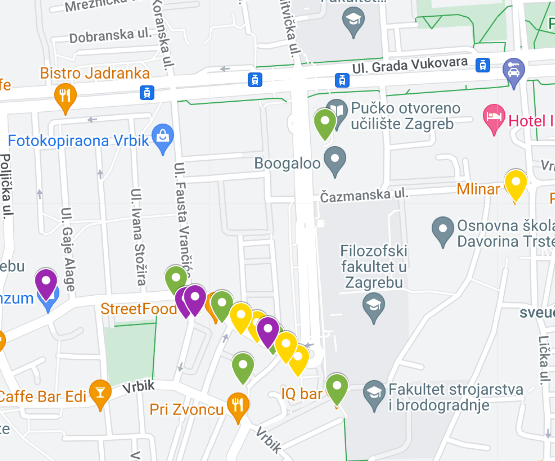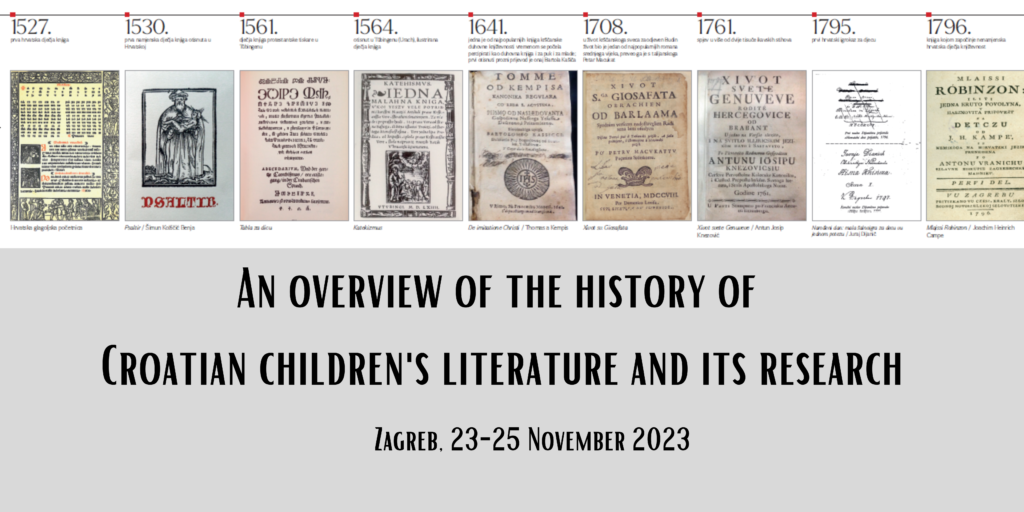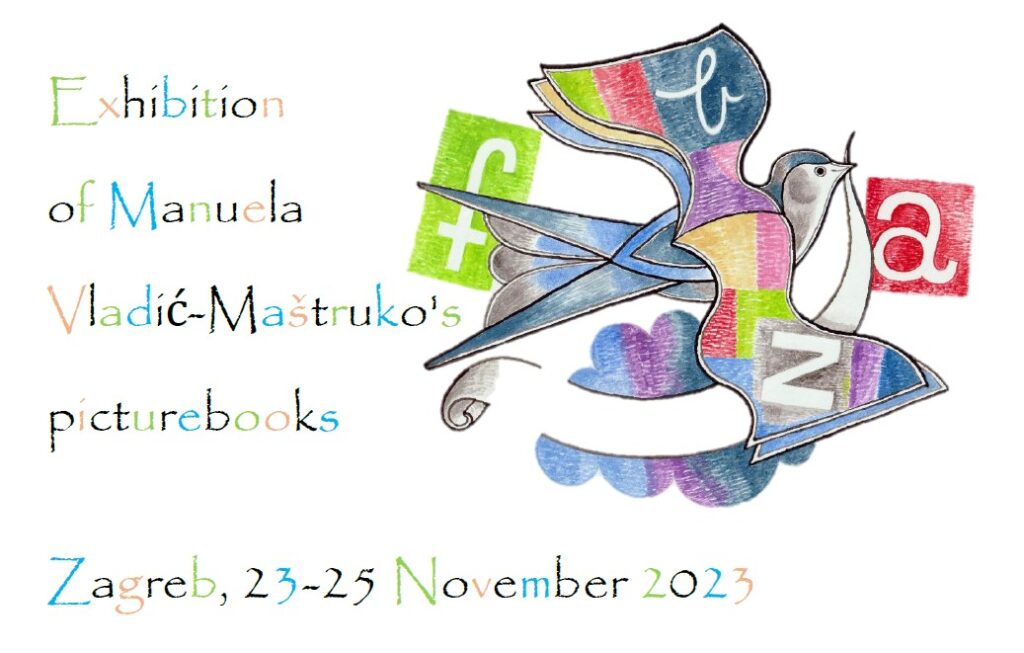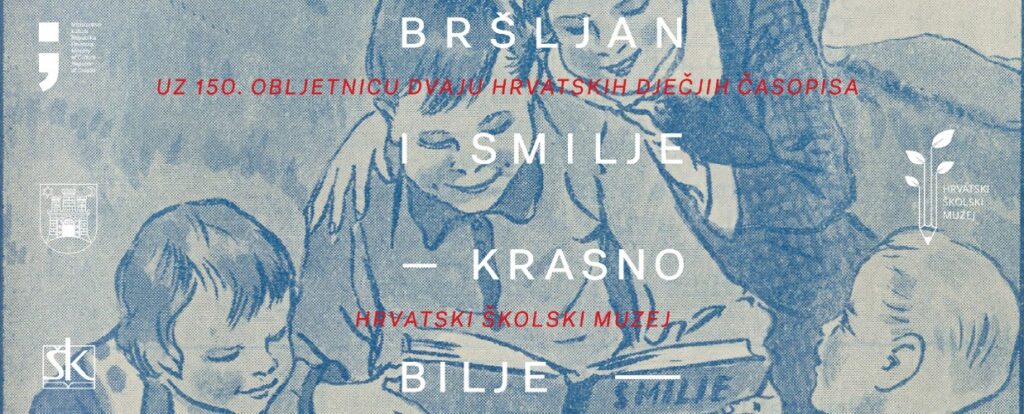The venue
The conference is hosted by the Faculty of Humanities and Social Sciences, Ivana Lučića 3, Zagreb.
Walking
The Faculty building is located c. 30 minutes on foot from the main square (Trg bana Josipa Jelačića) and c. 15 minutes on foot from the Main Railway Station (Glavni kolodvor). For detailed directions, use the map below.
Tram lines
The Faculty building is also accessible via tram lines 3, 5 and 13.
Travelling in either direction, get off at the Sveučilišna aleja station and walk south down Ivana Lučića Street. Please note, Line 3 does not operate on weekends. Tram tickets are sold by tram drivers and newsagents. Validating machines are located at the front and back of each car.
Taxi services
There are three taxi companies in Zagreb. Using taxi services in downtown Zagreb is relatively inexpensive. Airport fares differ between the companies.
Taxi Cammeo: call 1212
Radio Taxi Zagreb: call 1717
Eko Taxi: call 1414
Uber and Bolt are also available and usually more affordable.
Nearby restaurants, cafés, bakeries and shops Conference dinner will be held on Thursday, 23 November at Tajer Restaurant
For more information, use the map below: Ul. kralja Zvonimira 117 / King Zvonimir Street 117
Conference Programme
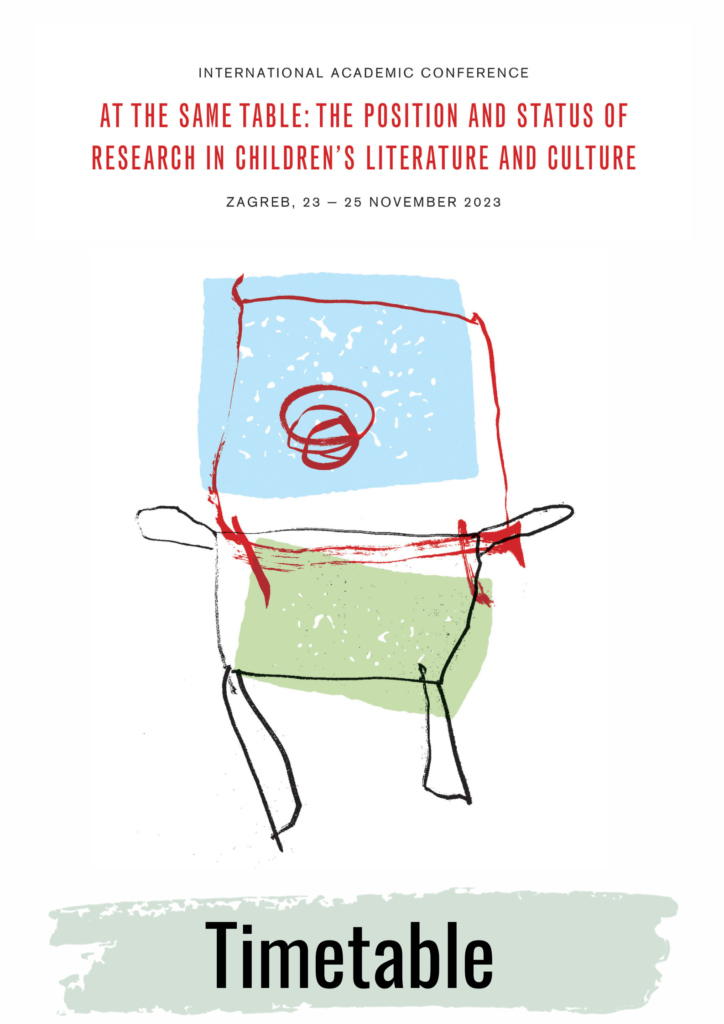
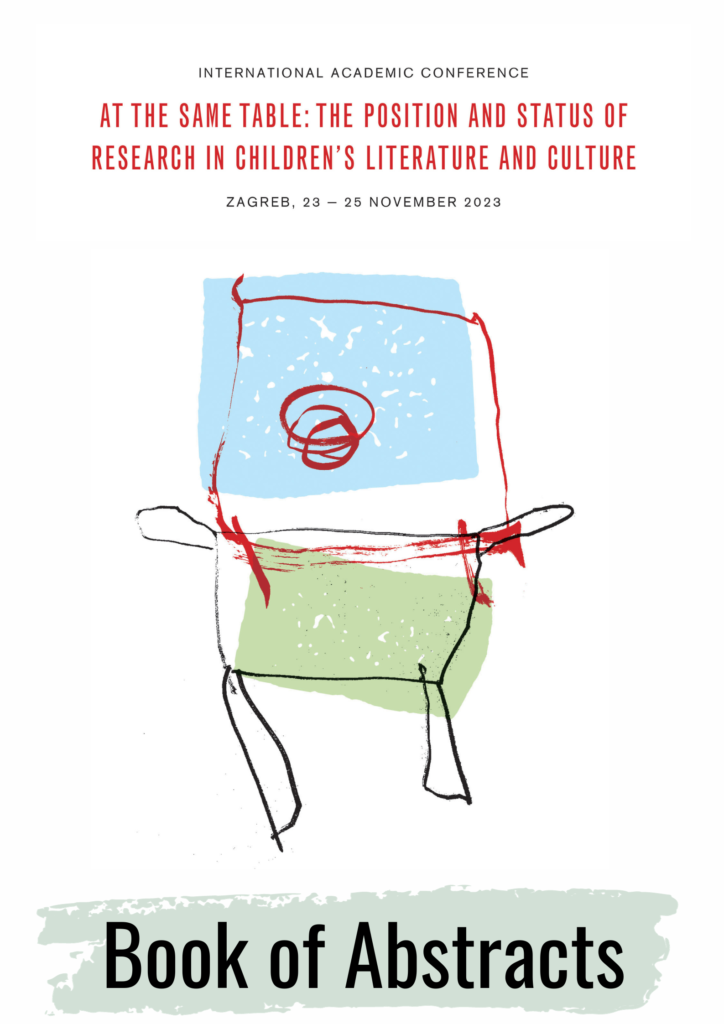
Cultural Programme
At the Conference venue (The Faculty of Humanities and Social Sciences, Ivana Lučića 3, Zagreb)
The exhibition was prepared by Berislav Majhut and Dubravka Težak The exhibition was prepared by Marijana Hameršak and Petra Požgaj
Graphic design and print by Alfa d.d. In cooperation with the Croatian Center for Children’s Literature,
Zagreb City Libraries
At the Croatian School Museum (Hebrangova 5, Zagreb)
The exhibiotion Ivy and Immortelle – beautiful plants: with the 150th anniversary of two Croatian children’s magazines was prepared by Štefka Batinić and Frano Dulibić.
It presents two Croatian children’s magazines launched in 1873. Both are the result of teachers’ activities in the second half of the 19th century, which also included involvement in creating appropriate texts for children. The exhibition depicts the contribution of these magazines to children’s literature, describes the context of their launch and illustrate their role from the perspectives of the school and everyday life of lower grades pupils. It also brings an overview of the exceptional artistic and graphic dimension which was fostered in both magazines engaging some of the most prominent illustrators like Clement Crnčić, Andrija Maurović, Julije Meissner, Vilko Gliha Selan and others.
Keynote speakers:
Matthew O. Grenby
Newcastle University, United Kingdom of Great Britain and Northern Ireland
Tijana Tropin
Institute for Literature and Arts in Belgrade, Republic of Serbia
Peter Svetina
Institute of Slavic Studies at the University of Klagenfurt, Republic of Austria
At the Same Table: The Position and Status of Research in Children’s Literature and Culture
The striking metaphor of “the children’s table” is aptly employed by Anna Mae Duane (2013) with the aim of illustrating the position of childhood studies in the humanities: the guests at the children’s table know they occupy a marginal space, placed out of earshot of the juiciest adult conversations and denied an opportunity to take an active and valued part in adult discussions. Is that really (still) the case and what does research in children’s literature and culture have to offer to the humanities – these are the main questions posed by this conference.
It was only at the beginning of the 20th century that children’s literature was acknowledged as the object of study in a separate field, but discussions of its existence continued for decades. The condescension towards children’s literature and the denial of its existence typically stem from the perspective of immanent literary criticism, which begrudges children’s literature its simplicity and its frequently (overly) pronounced utilitarian function. It is as if the study of “simple texts” has resulted in “simple scholarship”.
Children’s literature is produced, distributed, purchased, and researched by adults. And all of them strive to gain an insight into that unique children’s world to which they used to belong and which, once abandoned, survives solely as a series of subjective flashbacks. Yet, as children’s literature is informed by broader cultural conceptions of the child and childhood, researchers must pay equal attention to the artistic autonomy of authorial visions and the cultural and social conditions in which children’s literature is produced. It is, therefore, not surprising that, in addition to its implicit readers, children’s literature often attracts adult readers, to whom it brings a unique pleasure. Given all of the above, researchers dealing with children’s literature are faced with some important questions: What is the relationship between research in children’s and non‑children’s literature and culture? What are some of the methodological specificities of research in children’s literature?
Even though discussions of the existence of children’s literature are rare nowadays, the borders of children’s literature appear more blurred than ever, and its functionality is gaining importance once again. In a context characterised by the influence of new electronic media, changing economic and social conditions, a transformation of children’s everyday life, different reading habits and heterogenous modes of literacy, children’s literature is undergoing an inevitable change, which calls for an elaboration of an adequate scholarly approach under the changed contemporary circumstances.
The conference subtopics include but are not limited to the following:
- The position of research in children’s literature in the humanities. Children’s literature and culture, childhood studies
- Is there a history of children’s literature? Can we speak of the theory or theories of children’s literature? What is their relationship with other cultural and literary theories?
- The relationship between the utilitarian and the artistic in children’s literature (educational aims, emotional development, developmental support, inclusion, ecology, etc.)
- Children’s literature and adult literature (specific characteristics of children’s literature, overlaps between children’s and adult literature, children’s literature and trivial literature, the relationship between the history of literature and the history of children’s literature)
- Media and the poetics of children’s literature (intermediality and transmediality of children’s literature)
- Children’s literature and social control (the role of ideology in children’s literature, the issue of censorship, the literary canon)
- Children’s literature and the social and cultural context (the relationship between children’s literature and popular culture, children’s literature and the everyday, the economic aspects of children’s literature)
Application
We invite you to submit 250‑word presentation abstracts and up to 5 keywords via the official conference email: ziskonf.hidk@gmail.com.
The abstract submission deadline is 15 May 2023. The authors will be informed of the outcome of their submissions by 15 June 2023.
Conference fees
|
|
Early bird fee (until 15 July 2023) |
Late fee (from 15 July 2023) |
|
Conference fee |
EUR 50 |
EUR 70 |
|
Conference dinner (optional) |
EUR 30 |
EUR 30 |
Organising committee:
Sanja Lovrić Kralj, chair, Croatian Association of Researchers in Children’s Literature
Marijana Hameršak, Institute of Ethnology and Folklore Research, Zagreb
Katarina Ivon, Department of Teacher and Preschool Teacher Education at the University of Zadar
Ivana Milković, Centre for Research in Children’s Literature and Culture, Faculty of Teacher Education at the University of Zagreb
Lana Molvarec, Faculty of Humanities and Social Sciences at the University of Zagreb
Petra Požgaj, Faculty of Humanities and Social Sciences at the University of Zagreb
Vladimira Rezo, Faculty of Croatian Studies at the University of Zagreb
Dubravka Zima, Faculty of Croatian Studies at the University of Zagreb
